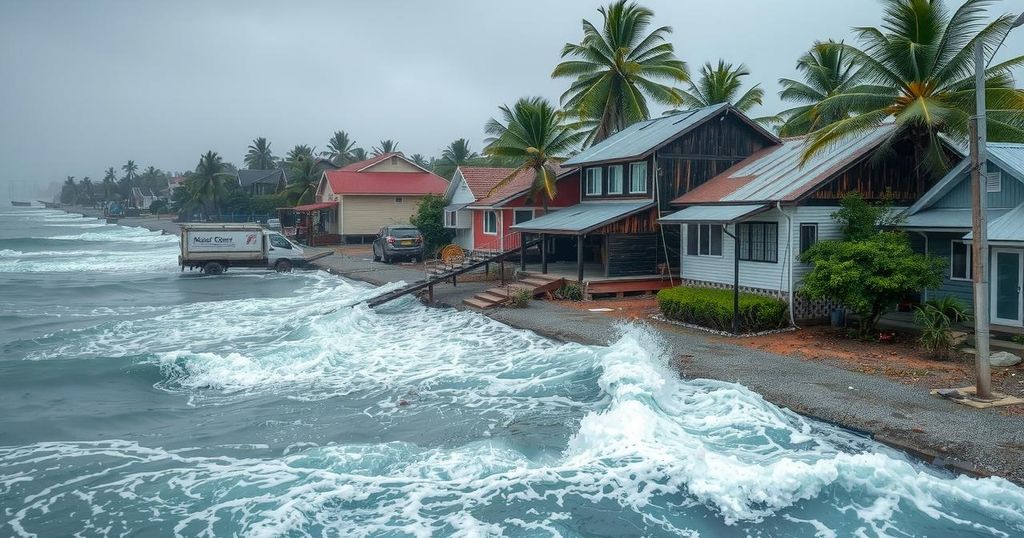Tropical Cyclone Chido Devastates Mayotte: A Harrowing Account of Destruction

Tropical Cyclone Chido has devastated Mayotte, causing catastrophic destruction and a rising death toll currently at 14, with expectations of further increases. The cyclone struck with historic intensity, marking a significant weather event for the French territory. The affected areas predominantly include slum regions home to undocumented migrants, highlighting the broader implications of climate change on vulnerable communities.
Tropical Cyclone Chido has wreaked havoc in Mayotte, a French territory located in the Indian Ocean. Reports indicate devastating scenes, with entire neighborhoods obliterated and crucial infrastructure demolished. This Category 4 cyclone, peaking with wind speeds of 136 miles per hour, is one of the most powerful storms to hit the islands in nearly a century. While the confirmed death toll stands at 14, this figure is anticipated to rise as recovery efforts continue. The areas most severely affected include impoverished neighborhoods housing many undocumented migrants, exacerbating the struggle for survival and assistance amidst this tragedy.
Tropical Cyclone Chido exemplifies the alarming increase in extreme weather events attributed to climate change, demonstrating its profound impact on vulnerable communities. The cyclone’s strength and subsequent destruction underline the urgent need for effective disaster response and climate resilience strategies, particularly in regions that are geographically and economically disadvantaged. Additionally, the backdrop of struggling recovery efforts amidst political transitions emphasizes the importance of timely support in mitigating such disasters’ effects, especially for marginalized populations.
The aftermath of Tropical Cyclone Chido serves as a stark reminder of climate change’s reality, showcasing the vulnerability of certain regions to increasingly frequent and severe weather disasters. As recovery efforts begin, it is essential to recognize the intersection of climate resilience and social equity. The situation calls for an urgent, unified response to support the communities impacted by this catastrophe through meaningful assistance and long-term planning to bolster their resilience against future occurrences.
Original Source: heatmap.news






